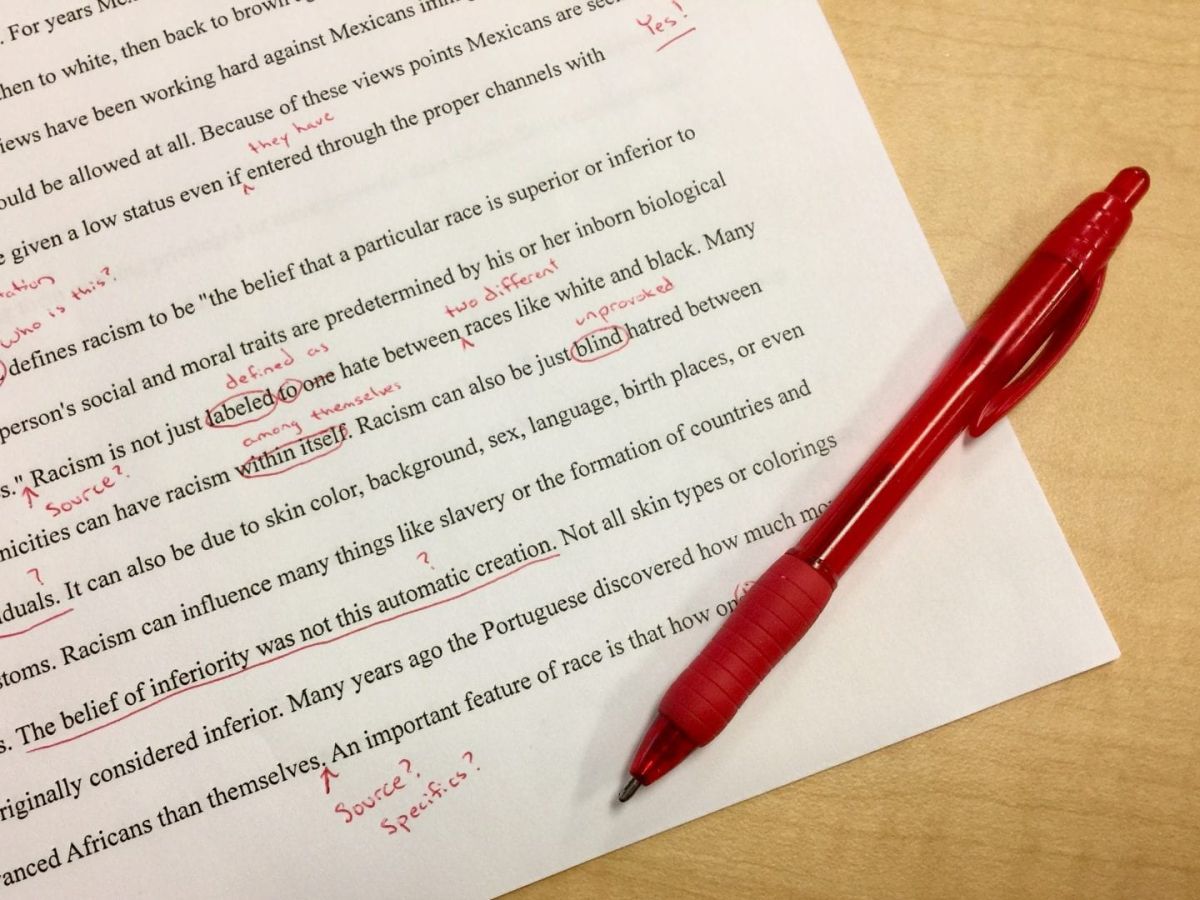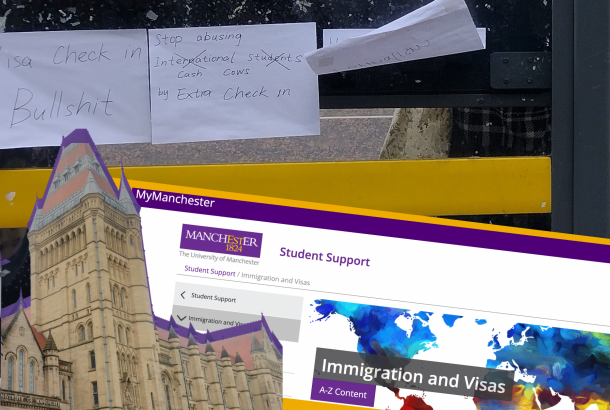A look inside ‘proofreading services’ – a one stop shop for academic malpractice
By David N Rose

As academic pressure remains an ever present issue for students across Manchester, it’s no surprise that “essay mills” have become a widely available and widely used service.
I spent some time at what branded itself a proofreading company – checking, editing and even rewriting scores of academic pieces for students in dire need for reasons of crisis, ability or simple laziness.
On any given day there might be a few documents available, and more when there are upcoming deadlines.
Irregular emails arrived from the top brass at the agency, and I replied by putting in a request for certain documents based on their length and the kind of proofing/editing required.
The agency provides a mixture of academic and business translations, but I’ve only ever translated one business document. The rest have been sections of essays and dissertations or whole pieces of academic work.
On the lowest paying end, there is a basic proofread. That involved focusing my grammatical gaze on each sentence and clearing up the language. It also required reworking some sentences, and for a higher fee, clients can pay to have their work rewritten. Supposedly the ideas remain the same, it’s just the language and style which have been adapted by the proofreader.
Generally I stayed away from this kind of work, partly because it’s too time-consuming and also because I found it ethically unsound. Even in the course of editing, I am aware that I am enhancing the work that I read. I am to a certain extent reproducing the text and creating something new, something that original author did not intend.
I have read what look like final year dissertations that barely make sense in English, let alone meet the standards for academic work at UK universities. In these cases, I had to considerably rework the language and thereby (re)interpret the author’s meaning. That can mean exercising enormous creative license in order for some paragraphs, indeed whole pieces, to read coherently.
Throughout university I have done quite well on academic essays. But the point isn’t that I know how to write well; it’s that I’m writing well on someone else’s behalf. I’m fully aware that my writing style and vocabulary will improve the quality – if only for the fact that some work is of an appalling quality to begin with.
I ended up taking on this route because I was fed up of working for other people and wanted to be my own boss and go freelance – a yearning that strikes many of us millennials. I struck out into editing, proofreading, copywriting, tutoring, translating, because these were the jobs I could do from my laptop and for which I had the skills.
During my freelance stint, I even came across roles that seemed to good to be true, like getting paid to write essays. I love writing, and I actually quite like writing essays, so this type of work would have been ideal.
It turns out that these essays become the products of what is euphemistically known as the “model answer industry”, or more accurately as the “essay mill”. The editing work I’ve been doing is on the lighter end of this industry, but still dubious enough to prick some ethical sensitivities. Essay mills, however, are laughable in their flaunting of anti-plagiarism.
You simply enter the parameters of your essay into a capture form (word count, desired grade, necessary sources, title, discipline, deadline) and the essay mill will pay a writer to hash out your coursework or dissertation in a week, for a substantial fee, potentially hundreds.
Agencies and companies market these pieces of work as examples of a first class or 2:1 essay, which the client will then use to guide the writing of their own essay. It requires a certain amount of idealism (or naivety) to swallow that one.
Some agencies are less coy, for example the unashamedly named essaymills.com, which declares of higher education “every paper would require you to explore a different set of sources and study a different subject”. They therefore invite clients to pay for their assignments to be written for them, to relieve the pressures of academic life.
This is a specific type of plagiarism known as contract cheating. A Swansea University study of 50,000 students reported by the BBC in 2018 found that 15.7% of respondents admitted using essay mill services. Unsurprisingly, a post on the Fallowfield Student Group asking for students’ experiences with using essay mills was met with resounding silence.
In many of the essays I’ve proofread, clients want their academic English spruced up, especially if they are international students. In some pieces, however, you wonder if and how the author has been admitted to a higher education institute with such a low grasp of language. Even at MA level, there are some students who struggle to function coherently at postgraduate level. I admire the determination to undertake a Masters in a second language, and while conversational English may not be a problem, the academic work requires a different level.
You hear other stories about students who lose their dissertations and turn to essay mills to meet a deadline that would otherwise be unrealistic.
How can these practices, which undermine the credibility of UK higher education institutions and devalue degrees, be prevented? Not easily, due to the fact that essays produced by mills won’t show up on anti-plagiarism software such as TurnItIn. These are original essays, just not original by those who submit them.
TurnItIn posted on their blog about the efficacy of the marketing strategies that these companies use: “Essay mills have learned to meet the very particular, seasonal needs of students and have seamlessly adapted to new technologies, reaching potential and repeat customers through online advertising, emails, and even phone calls.”
Moreover, there may be little incentive for universities to really do anything about the problem. Higher education is a business, and therefore students represent custom. Essay mills, model answers, proofreading, all of these private services facilitate the academic success of students (read: customers).
This is especially true in the case of international students, who represent big money for the University. As one mill writer put it, “You have a UK system reliant on foreign students while, through the backdoor, companies are devaluing the very degree certificates that attract all that foreign money in the first place”.
To be clear, international students are not to blame. Neither, really, are the mills themselves. Linguistically unequipped students and private essay services are symptomatic of the deeper problem with higher education: money. Universities are under pressure and want to attract as many customers as possible, from where ever possible.
The stakes are so high for both international and home students that a few hundred quid extra for a decent grade makes the tuition fees and living costs worthwhile. No one wants to pay over £9,000 a year just for the opportunity to study: customers want results.
As bleak as it may sound, I cannot see the model answer industry going anywhere. As long as the ideology of university-as-business remains in place, there will be essay mills offering privatised services in the name of assisting education.
As for me, I think my time as a morally suspect freelance editor may have just come to an end.







